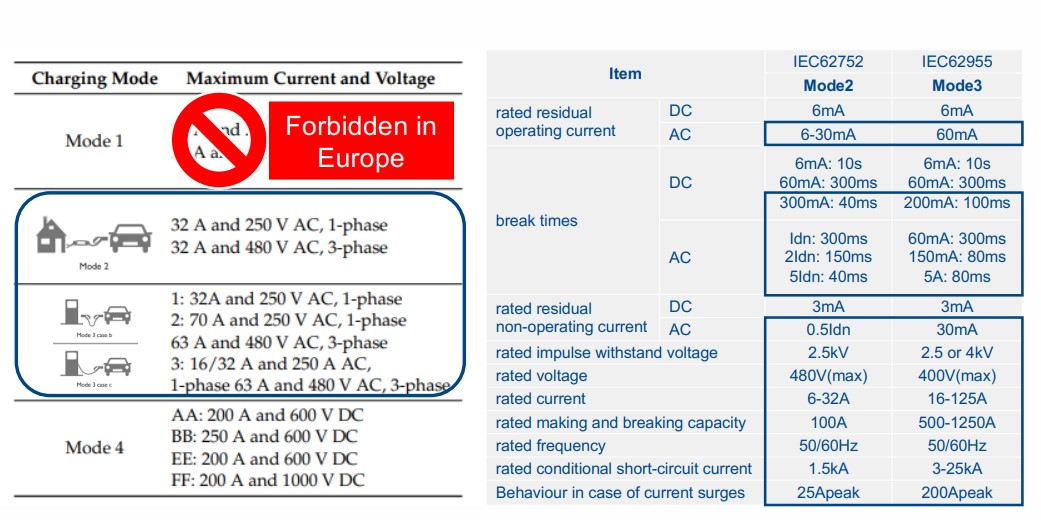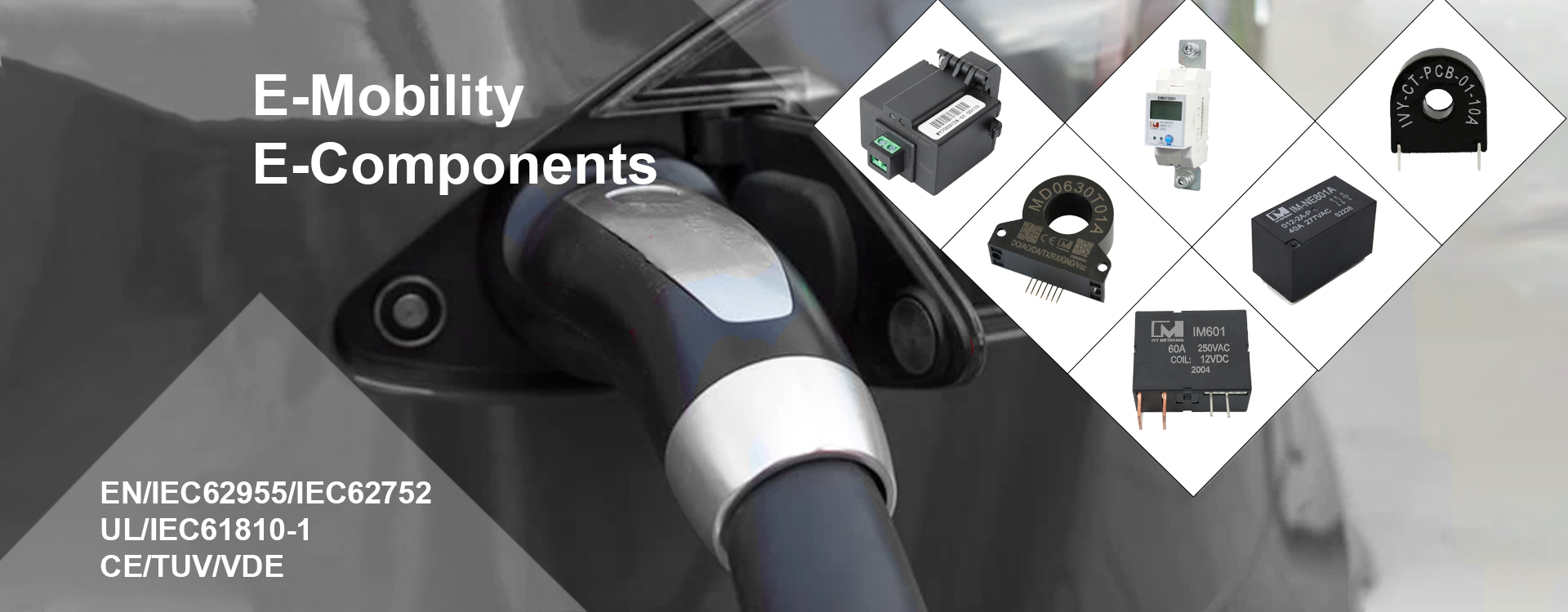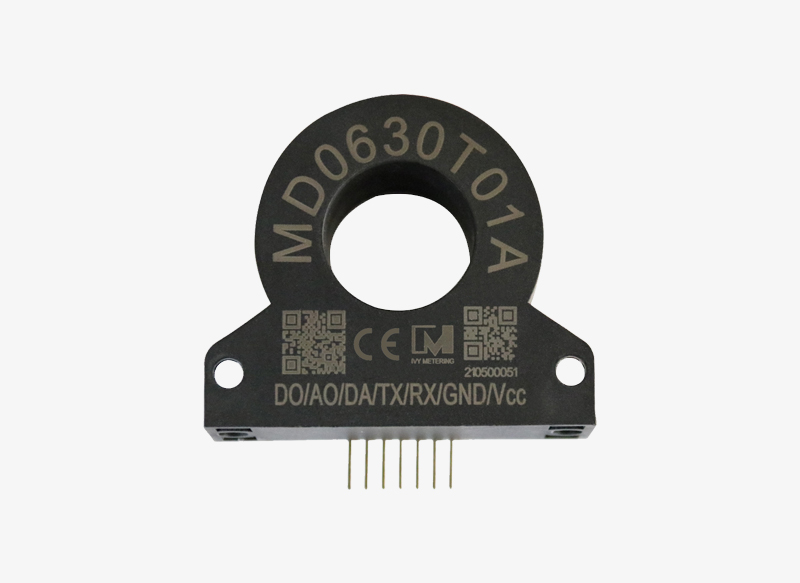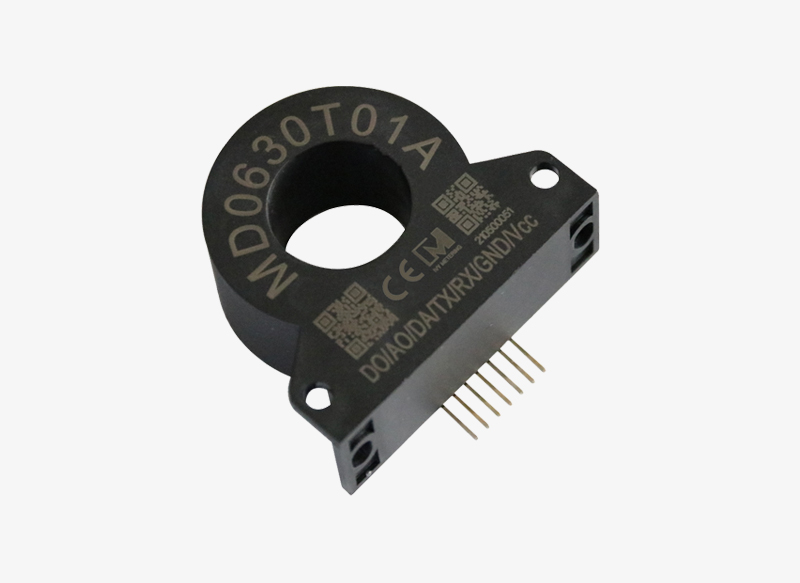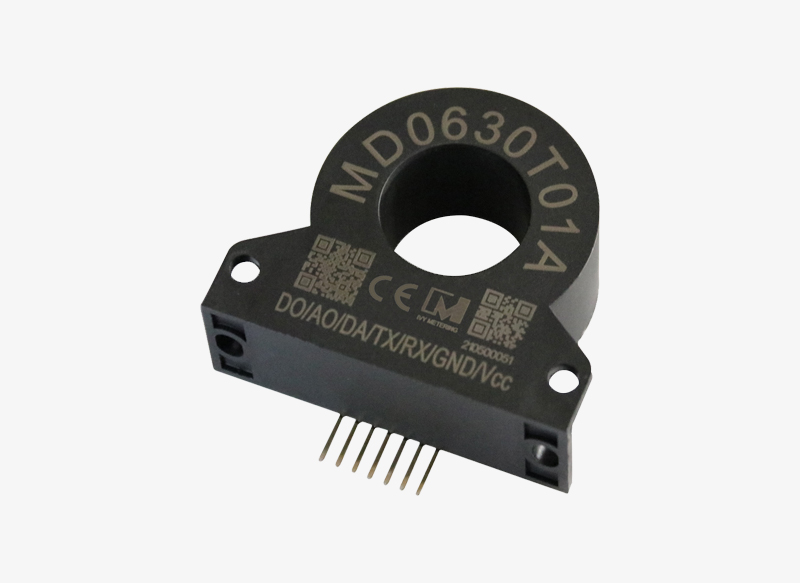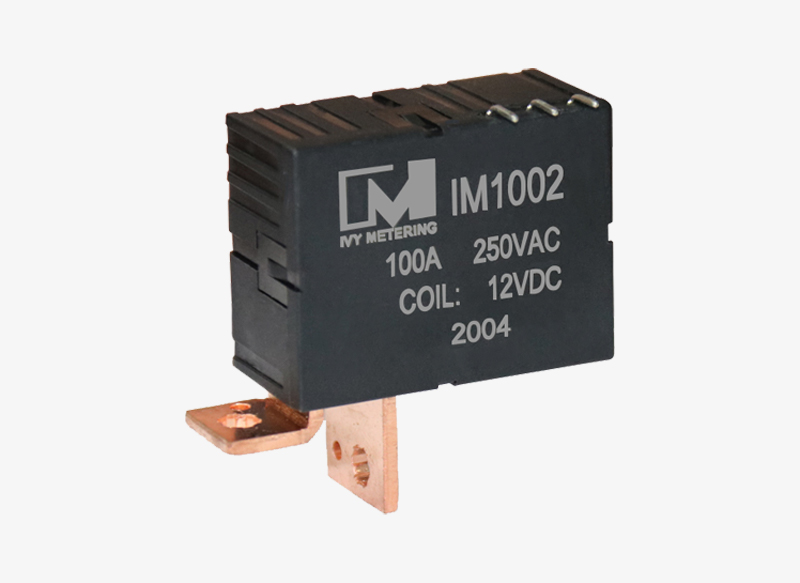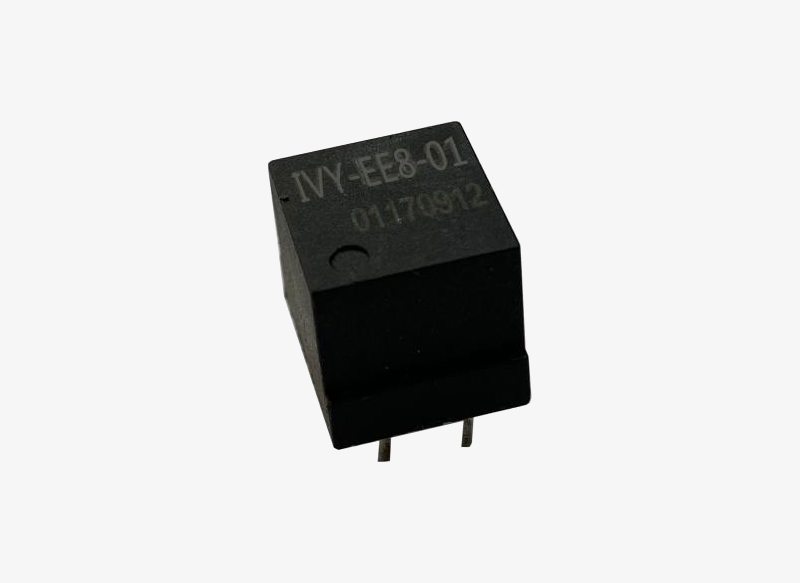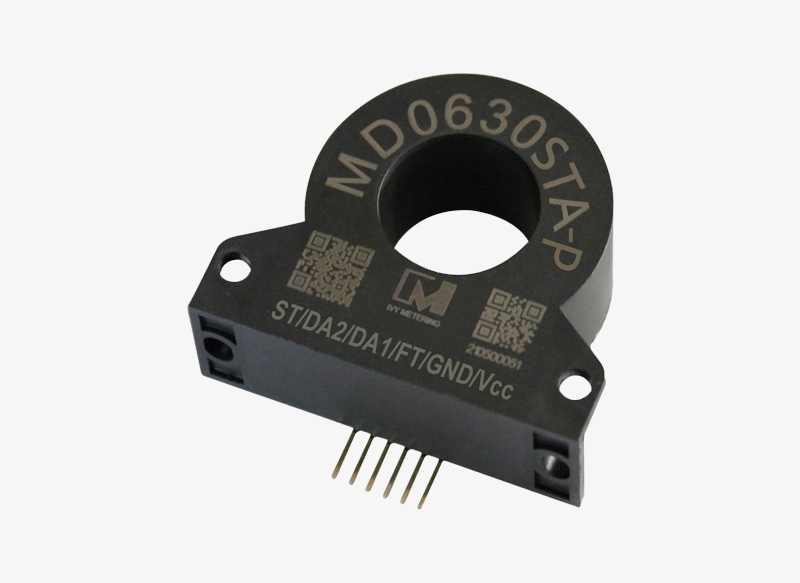Product Introduction
IVY offers MD0630T01A for monitoring or providing shock protection&fault protection on AC and DC installations and for EV charging applications. MD0630T01A is a RCD sensor specifically developed for EV-charging providing all-current sensitivity. The sensor can issues an alarm signal in case of hazardous electrical faults (DC and AC). It has the characteristics of accurate measurement, small size and integration. The RCD sensor can be set separately for AC and DC leakage and has a digital output function.
MD0630T01A is an automotive grade leakage current sensor family also called Residual Current Monitoring (RCM) or Residual Current Detection (RCD) class B and B+, dedicated to DC, AC, and AC+DC leakage current measurement. The MD series is the IVY Metering RCM type B current sensor family designed to measure and protect from AC and DC fault currents (leakage current). Our sensor to have best in class accuracy hence protecting it from potential fire hazards and electrical shocks. The MD series sensors provide a fault current output and enable fast response time and detailed fault information.
The MD0630T01A can monitor DC (6mA) and AC (30mA) residual currents, it is connected in series with the AC supply to an EV and will provide a signal output if a DC current ≥ 6mA DC flows in the circuit. Typical application: On Board Charger: Automotive OBC up to 22 kW; Off board Charging: Mode 2: In Cable Control and Protection Device (IC-CPD), Mode 3: Wall box chargers. In addition, our delivery time is also guaranteed.
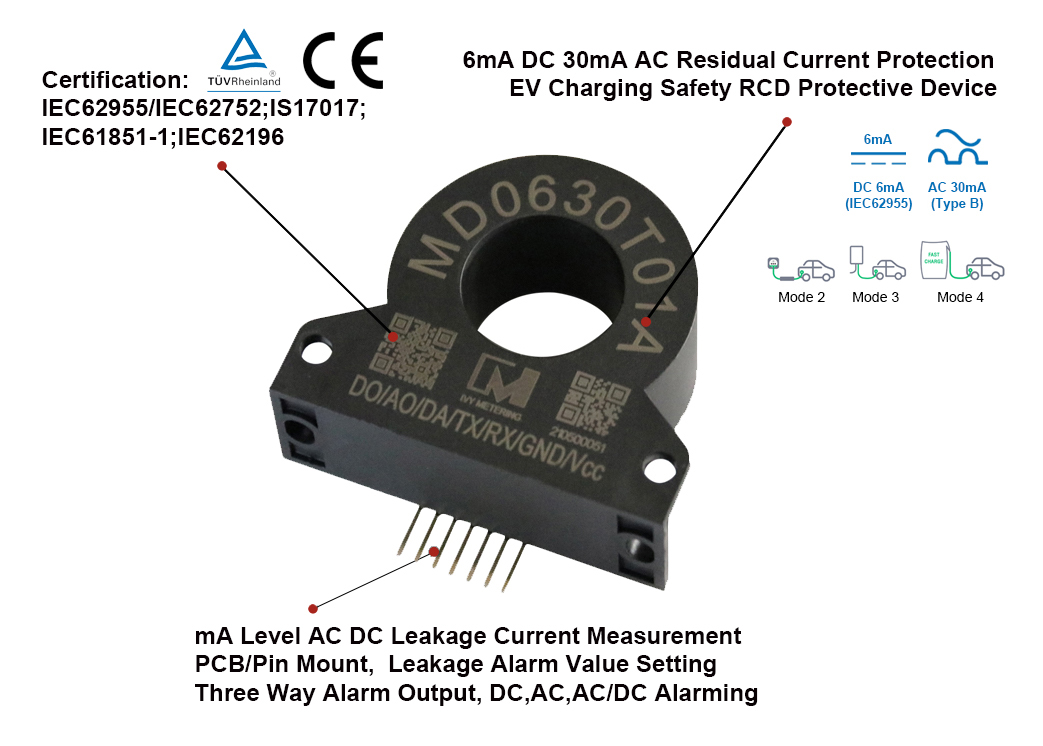
Product Features
1. Small Size, Integration Design, Vertical(Pin, Pin&Cable Type)/Horizontal(Cable Type) Mounting Optional
2. Integrated self-monitoring and test functions; Type B Leakage Protection
3. AC DC Leakage Data Readable; Alarm Value Programmable; 3 Way Alarm Outputs; Digital Output
4. UART Comm, with Modbus Protocol; Standard: EN 61000-6-3:2007+A1 ,EN IEC 61000-6-1:2019
5. Professional Certification: TUV(IEC62955/IEC62752/IEC61851-1); UL 2231-1/UL 2231-2; IS17017, CE-EMC
6. Electrical Safety at Low Cost (Compared to Type B RCCB)
7. Robust Mechanical and Electrical Design for Harsh Environmental Conditions
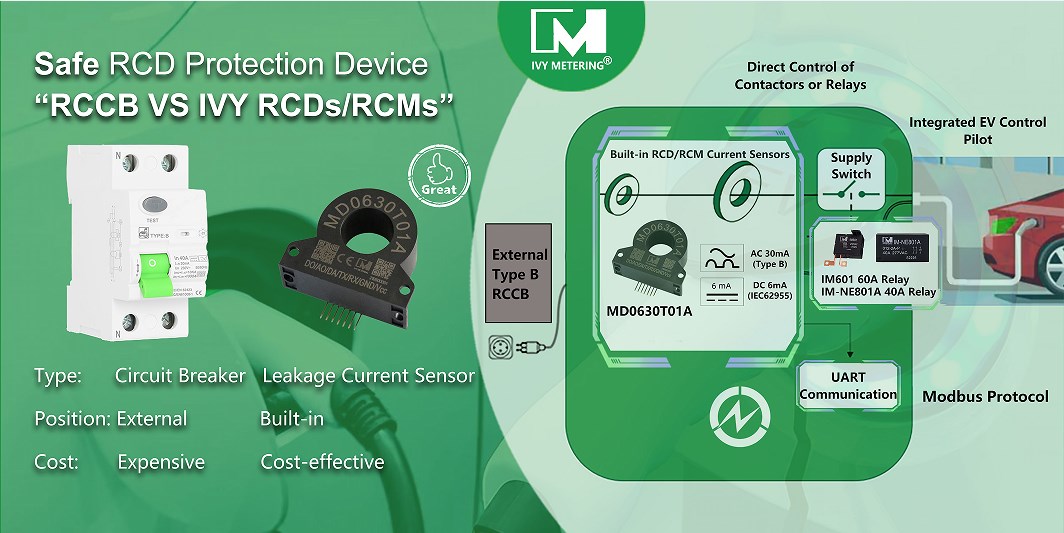
Product Parameters
Wide voltage input: 12V±20%
Measuring current range: DC current 2-15mA; AC current 3-100mA (default threshold: DC 6mA, AC 30mA)
Accuracy : at 25℃, DC±0,2mA, AC±0.3mA
Can read current value and set alarm current value
Three outputs: DC alarm, AC alarm, AC/DC alarm
Working environment temperature: -25℃~+80℃
Plastic case, small SIP package
EV Charging Application
Within an electrical vehicle, the AC/DC conversion process ensures that charging of the electrical vehicle occurs within the confines of the electrical vehicle itself. Electrical vehicle manufacturers state that, in the case of a 3-phase charger, DC current leakage can occur. The same phenomenon is replicated in the case of a single-phase charger with boost stage.
The electrical vehicle cannot be fully isolated and therefore a proper protection against DC residual current is needed in the system. The protection can be accomplished either with a 6mA detection device (Residual direct current detecting device, RDC-DD) inside the charger or with a Type B RCD either inside the panel board or inside the charger itself.
